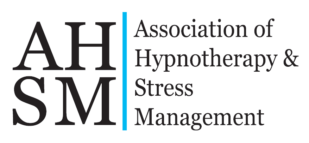ADDICTION AND HYPNOTHERAPY. Dean Learoyd
Whatever the presenting issue in therapy of any kind, it is best practice to follow certain guidelines in order to get the best possible results. This has never been more appropriate than when dealing with Addiction or Compulsion. In 1990 an American Psychologist, Egan, introduced ‘six stage counselling’ as the most effective road to recovery. In Hypnotherapy these six stages are both important and can, in my opinion, be many times more effective than other forms of therapeutic intervention, including CBT and Counselling. The 6 stages lend themselves perfectly to a Hypnotherapy treatment plan.
Stage 1 – Developing trust and rapport. In an assessment for Hypnotherapy, many practitioners engage NLP techniques to gain fairly rapid rapport and the pre-talk is important with all therapies. Clearly we all should have a genuine desire to help the client and that is the key, but an addict needs to trust implicitly. In any addictive person there is inevitably hurt lying somewhere deep within.
Stage 2 – Getting to the root of the problem. This can be difficult and time consuming in talking therapies. Analytical Hypnotherapy can elicit memories from deep within the subconscious mind that are indicators to guide the therapist towards the cause of the addiction. Also it is crucial to identify the secondary gain, i.e. what does the addiction give to the addict in terms of benefit or gain? Once this has been established, it will be easier to replace that gain with something more positive and less harmful.
Stage 3 – Setting goals is much harder to do than say. With a powerful Hypnotherapy session, the client’s issues can be set out and ‘change’ goals very easily established, by using deep suggestion therapy techniques. Metaphors are a far more effective way of getting the subconscious to buy into the task in hand and this can be more easily delivered in a Hypnosis session than in other types of therapy.
Stage 4 – Taking action and empowering change. Again this is much harder in a standard behavioural therapy setting or indeed counselling. Hypnotherapy is by far the most powerful and effective way to introduce change directly into the subconscious mind. Hypnotherapy can successfully reframe the old addictive behaviour and introduce new, positive and permanent habits to replace it.
Stage 5 – Maintaining and supporting the changes made. Hypnotherapy is a direct subconscious intervention and post hypnotic suggestion can be installed to make sure that the new behaviour remains effective and stays in place.
Stage 6 – Enabling the client to finish the course of therapy happy and confident. That they will not relapse is also easier said than done in other types of therapy. Using Hypnotherapy to install new, positive behaviour and adding post hypnotic suggestion is a great way to prevent relapse.
The new client behaviour will continue to reinforce long after the final session. In all therapy there needs to be a genuine desire for change which, in addiction, often comes when the client has suffered a great deal and sometimes hits rock bottom. I recall particularly a client with alcohol compulsion achieving complete and permanent abstinence after just one powerful Hypnotherapy session. One of the most powerful benefits to using Hypnotherapy with addiction is that often results can be quite rapid. This tends to give the client more hope and encouragement than other more protracted therapies.
